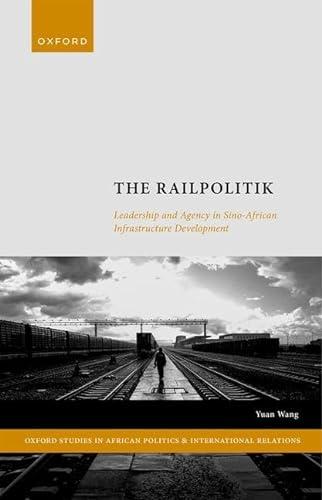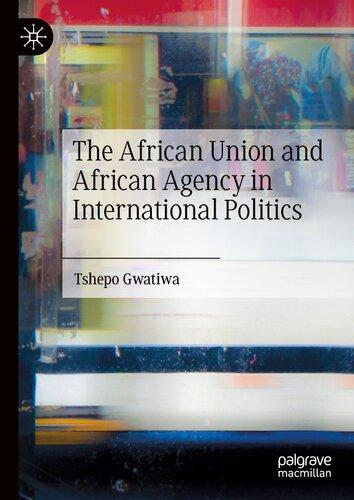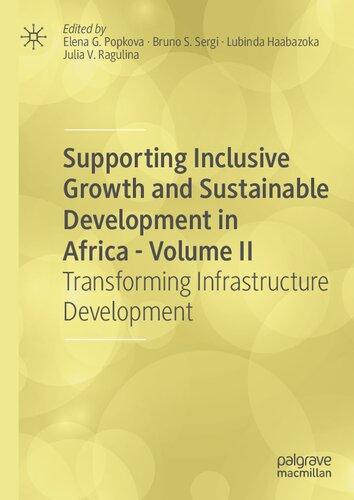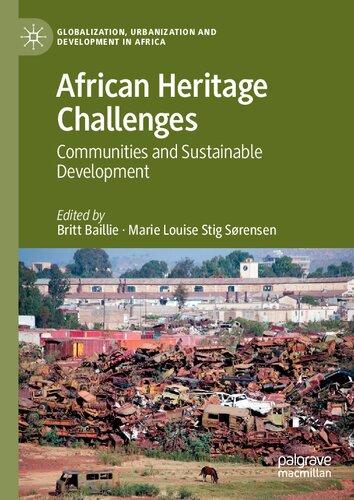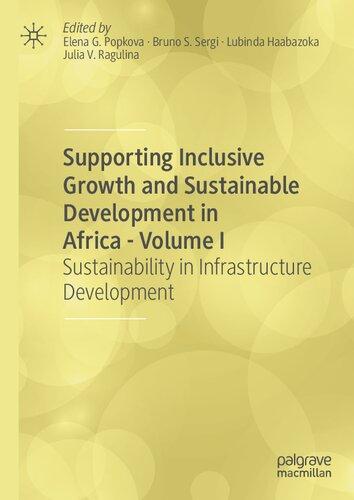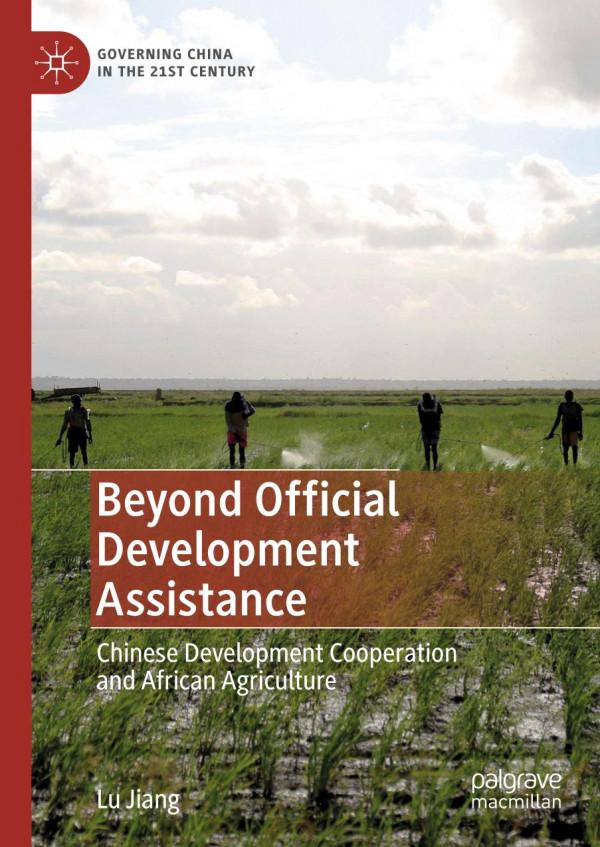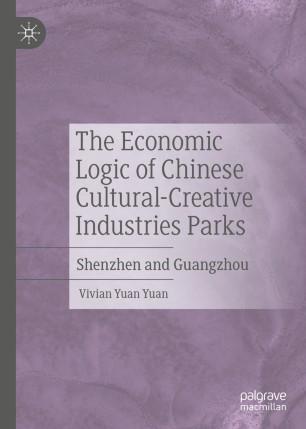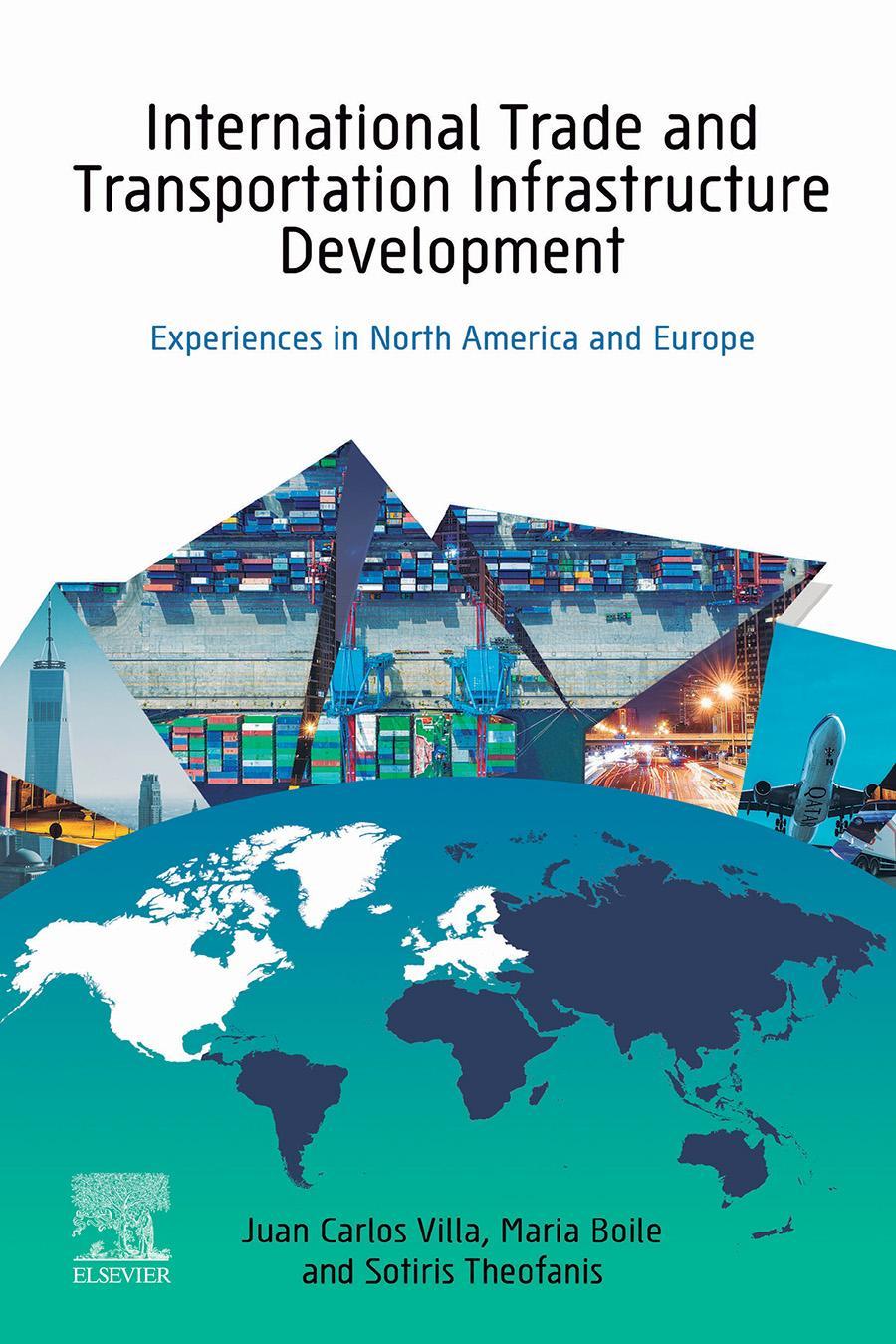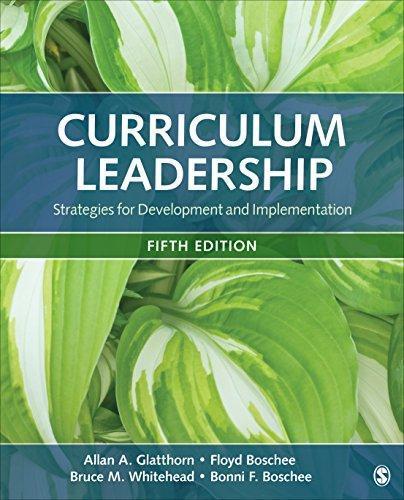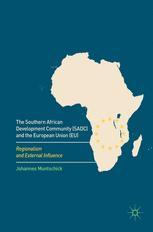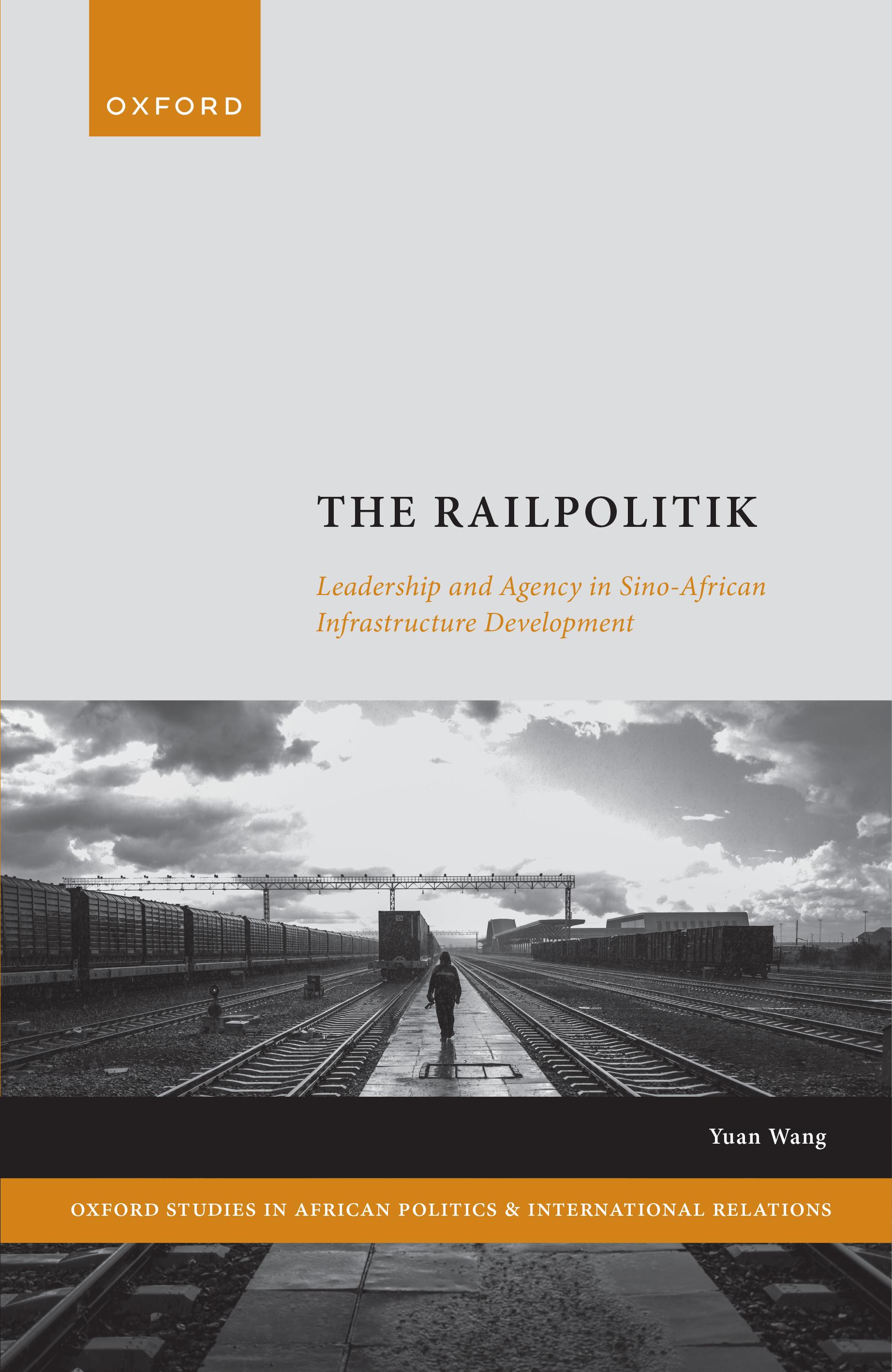TheRailpolitik
LeadershipandAgencyinSino-African InfrastructureDevelopment
YUANWANG
GreatClarendonStreet,Oxford,OX26DP, UnitedKingdom
OxfordUniversityPressisadepartmentoftheUniversityofOxford. ItfurtherstheUniversity’sobjectiveofexcellenceinresearch,scholarship, andeducationbypublishingworldwide.Oxfordisaregisteredtrademarkof OxfordUniversityPressintheUKandincertainothercountries
©YuanWang2023
Themoralrightsoftheauthorhavebeenasserted Allrightsreserved.Nopartofthispublicationmaybereproduced,storedin retrievalsystem,ortransmitted,inanyformorbyanymeans,withoutthe priorpermissioninwritingofOxfordUniversityPress,orasexpresslypermitted bylaw,bylicenceorundertermsagreedwiththeappropriatereprographics rightsorganization.Enquiriesconcerningreproductionoutsidethescopeofthe aboveshouldbesenttotheRightsDepartment,OxfordUniversityPress,atthe addressabove
Youmustnotcirculatethisworkinanyotherform andyoumustimposethissameconditiononanyacquirer
PublishedintheUnitedStatesofAmericabyOxfordUniversityPress 198MadisonAvenue,NewYork,NY10016,UnitedStatesofAmerica
BritishLibraryCataloguinginPublicationData
Dataavailable
LibraryofCongressControlNumber:2023942196
ISBN9780198873037
DOI:10.1093/oso/9780198873037.001.0001
Printedandboundby
CPIGroup(UK)Ltd,Croydon,CR04YY
LinkstothirdpartywebsitesareprovidedbyOxfordingoodfaithand forinformationonly.Oxforddisclaimsanyresponsibilityforthematerials containedinanythirdpartywebsitereferencedinthiswork.
1.Therailpolitik:AgencyofAfricanleadersin
2.3Constructionandoperation:exercisingpoliticalchampionship
2.3.1Completiontimelineandmissiongeneration
2.3.2Bypassingexistinginstitutions
2.3.3Co-optation
2.3.4ChineseagencyduringStandardGaugeRailway implementation
2.4StandardGaugeRailwayPhase2A:diminishedchampionship
2.5Discussion:societalcaptureversusstateautonomyindemocracy
2.6Conclusion
3.Revolutionarydemocracy,developmentalstate,andcapitalism
3.1Fromrevolutionarydemocracytodevelopmentalstate
3.1.1Revolutionarydemocracy
3.1.3Meles’personalisticrule
3.2Initiation:politicalchampionshipunderMeles
3.2.1Meles’championship
3.2.2Chineseinterventionduringinitiation
3.3Construction:diminishingpoliticalchampionshipunder HailemariamDesalegn
3.3.1‘Legacymaintainer’to‘Mengistyelem!’(‘Thereisno government!’)
3.3.2Strongcommitmentwithdiminishedleadership authority
3.4PoliticalcrisisandAbiy:aforgottenrailway
3.4.1Politicalcrisis,democraticreform,andtheTigraywar
3.4.2DeclinedcommitmenttotheAddisAbaba–Djibouti railway
3.5.1Chineseinterventionduringconstruction
3.5.2‘Politicalkidnap’?
3.6HawassaIndustrialPark:politicalchampionshipduring thepoliticalcrisis
4.Struggletoreconstruct:Arailwayofneglect
4.1Hyper-presidentialismandthe‘parallelstate’
4.1.1Theparty-statewithhyper-presidentialism
4.1.2The‘parallelstate’
4.2Nationalreconstructionandrailwayinitiation
4.2.1Nationalreconstructionandthe‘parallelsystem’of ChinainAngola
4.2.2InitiationoftheBenguelarailwayrehabilitation
4.3Construction:DosSantos’ceremonialattention
4.3.1Ceremonialpresidentialcommitment
4.3.2Arelativelyweakbureaucracy
4.3.3MinimalChineseagency
4.4Strugglingtooperate
5.Bigbrotherandsmallboy?Africanexecutive extraversionunderSino-Africanpowerasymmetry
5.1Sino-Africanstructuralasymmetry
5.1.1Dependencytheoryandneo-dependencyin Sino-Africandebates
5.1.2Critiqueofdependencytheory
5.1.3Astrategyofextraversion
5.3Chinese-sponsoredrailwaysasinstrumentsforexecutive
5.3.1Structuralasymmetry
5.3.2Executiveextraversionthroughrailways
5.3.3Externalenabler:afragmentedChina
Acknowledgements
InwritingthisbookIhaveincurredmanydebts.Thisbookcouldnothave beencompletedwithouttheinterviewees’generoussharinginAngola,China, Ethiopia,andKenya.Theirrichpracticalexperiencesarevaluablesourcesof knowledgeformeacademically.Atapersonallevel,Iwasconstantlyinspired bytheirstrongdeterminationtoproceeddespiteobstacles.Iwasextremely saddenedtohearthenewsthatthreeofmyformerintervieweeshadpassed away.DrNewai,JoséPatrocı´nio,andSolomonOunaweredeeplypassionate andknowledgeableabouttheirworkandweregenerousandkindinsharingtheirexperiencewithme.Manyofmyinterviewees’quotesmustremain anonymous,butwithouttheirgoodwillInevercouldhavecollectedenough empiricalevidencetofinishthisbook.
Duringthewritingofthismanuscript,RicardoSoaresdeOliveirawas alwaysthefirstreaderofeachchapterdraftandwasaconstantsourceof adviceandconstructivecriticism.Ricardohimselfrepresentsthehighestlevel ofresearchinthepoliticaleconomyofAngolaandAfricanpolitics,andis alsoanaccomplishedwriter.IhavebeenfortunateinreceivinghissupervisionformyMScandDPhilstudiesatOxford,andourcollaborationhas continuedsinceIleftOxford.EzequielGonzálezOcantosandMilesLarmer providedextremelyvaluablecommentsforthismanuscript,savedmefrom manyerrors,andmademyargumentclearerandsharper.Iwasinspiredby thethoughtleadershipofDeborahBra¨utigamtopursueSino-Africanrelations academically.Shehasalwaysbeenarichsourceofinspiration,support,and encouragement.
ThebookhasbenefitedfromconversationsandadviceaboutAfricanpolitics,globalChina,andChina–Africainfrastructurecooperation.ChrisAlden, EmmanuelAkyeampong,JamieMonson,FolashadéSoulé-Kohndou,Tom Christensen,IainJohnston,andMinYehaveall,onatleastoneoccasion, providedsignificantinsightforthedevelopmentofthismanuscript.The ChinaandtheWorldProgram(CWP)alumni’sperceptivecommentsand criticismattheCWPWorkshopinApril2022weretremendouslyhelpful fordevelopingthisbook.Inparticular,DawnMurphyandZoeZhongyuan Liureadmysamplechaptersandprovidedextremelyhelpfulsuggestions
forrevision.Iamalsoparticularlygratefulfortheinsightfulcommentsand criticismfromthreeanonymousreviewersofmybookproposalatOxford UniversityPress,aswellastheeditorialsupportfromDominicByattand VickiSunter.
Otherindividualsthatgenerouslylenttheirsupporttomyfieldworkin Angola,Ethiopia,Kenya,andChinadeservementioninghere.Myfieldworkin AngolacouldnothavebeencompletedwithoutthegeneroussharingofconnectionsandadvicefromManuelAlvesdaRocha,AnaDuarte,Luı´saRogério, ReginaSantos,FranciscoMiguelPaulo,AllanCain,MiguelGomes,Rafael MarquesdeMorais,EdmilsonAngelo,VictorMorais,andNelsonPestana, amongmanyothers.ArgumentdevelopmentaboutAngolaalsobenefitedfrom discussionswithLucyCorkin,JesseS.Ovadia,RebeccaElisabethHusebye Engebretsen,JacobHansen,andRicardoSoaresdeOliveira,andfromreadingtheirworks.Myfieldworkandlaterdevelopmentoftheargumentaround EthiopiabenefitedfromadvicefromandworksbyJasonMosley,BirukTerrefe, AlexandraZeitz,HarryVerhoeven,YunnanChen,WeiweiChen,MariaRepnikova,BerihuAssefa,MuluYesus,GirumAbebeTefera,andZizhuZhang, amongothers.Thetitleofthisbook, TheRailpolitik,isinspiredbyYunnan Chen’sexcellentworkingpaper:‘Railpolitik:Ethiopia’sRailAmbitionsand ChineseDevelopmentFinance’.InKenya,LinQi,ZhengliHuang,XinZhang, PengLiu,JiaoHu,JinghaoLu,andTongWu,amongothers,generouslyshared theirconnectionsandgoodwilltosupportmyfieldwork.InChina,IamgratefultoLiAnshan,LiuHaifang,XuLiang,HeWenping,TangXiaoyang,Zhou Jinyan,ZhengYu,XuXiuli,andWangYalinfortheirkindintroductionto informantsandintellectualadvice.
Mycohortoffellowformergraduatestudentsandpostdoctoralfellowscontinuestobeasourceoffriendshipandsupport.Differentchaptersofthis manuscripthavebeenpassedandpresentationsmadeamongcolleaguesat Oxford,SOAS,andColumbia-HarvardCWP,andIhavebenefitedbeyond estimationfromthediscussionsaswellasinnumerablesuggestionsandcriticismsthatIhavereceived.IamgratefultoClaraVoyvodicCasabo,Hang Zhou,BirukTerrefe,FilipBubenheimer,MikaelHibergNaghizadeh,AlexandraZeitz,YutaoHuang,BarnabyDye,NaosukeMukoyama,DannyHatem, HangweiLi,andWeidiZhengfortheirdiscussionsandcomments.During writingandrevisingthismanuscript,BlenTaye,EmileMathieu,LiyangHan, DannyHatem,XuanyiSheng,MarinaEriksson,andRustemYeshpanovhave beenconstantsourcesoffriendlysupport.MypostdoctorallifeinNewYork wassignificantlyenrichedbythefriendshipandintellectualcompanionshipof
ACKNOWLEDGEMENTS xi
HongZhang,JustinKeyCanfil,DanielSuchenski,ChiZhang,JunyanJiang, AustinStrange,andYueHou.MythanksalsogoestoZhenYangandKen Bosirewhoprovidedvaluableinsightsinthefinaleditorialstage.
MyDPhilexperiencewouldhavebeencompletelydifferentwithouttheprofessionalandcaringsupportofElizabethBrenner.HughPetterhelpedcreate thechanneltoconnectmyemotionsandmusic;thosesmallepisodesofpiano lessonsignitedcolourfulsparklesinmyOxfordlife.MyfriendsinChina,Molly HuazhengGuan,WenXu,andXiaShen,aswellasmyparents,grandma, andothermembersofmyextendedfamily,areconstantsourcesofstrength andlove.
TheChinaScholarshipCouncilandChinaOxfordScholarshipFundgenerouslyfundedmyDPhilandMScstudies.TheDepartmentofPoliticsand InternationalRelationsandMansfieldCollegeatOxford,myCWPofficeat RiversideChurchinNewYork,andmyofficeatDukeKunshanUniversityprovidedidealvenuesformetocompletethiswork.Partsofthisbookappearin thefollowingtwoarticles:Wang,Y.(2022).Executiveagencyandstatecapacityindevelopment:ComparingSino-AfricanrailwaysinKenyaandEthiopia. ComparativePolitics, 54(2),349–73;Wang,Y.(2022).Presidentialextraversion:UnderstandingthepoliticsofSino-Africanmega-infrastructureprojects. WorldDevelopment, 158,105976.
Kunshan,China October2022
Introduction
KenyanPresidentUhuruKenyatta(inoffice2013–22)wasproudtoachieve theimpossible.‘Todaywillbemarkedasagreatdayinthehistoryofour Republic’,saidPresidentKenyattawhenheaddressedtheinaugurationceremonyoftheChinese-financedand-constructedStandardGaugeRailway (SGR)on31May2017.Kenyattaintentionallyselectedthisinaugurationdate tobetwomonthsbeforethepresidentialelectionsinAugustwhenhewas seekingasecondterm,shorteningthecontractedschedulebyhalf.Originallycontractedtobecompletedinfiveyears,theprojecttookonlytwoand ahalfyearstofinish,makingthisthefirstprojecttobecompletedaheadof scheduleinKenyanhistory.TheSGRcrossedtwonationalparks,opposedby politicians,andwasinvolvedinhundredsofcourtcases,yetpolitics,courts, civilsociety,andevennaturedidnotdelayitsconstruction.Therailwayoperationalsoboastednoaccidentsincetheonsetofitsoperation,whichstarted on1June2017,adayaftertheinaugurationceremony.
ThetrajectoryoftheChinese-sponsoredKenyanrailwaywasnotsharedby itsEthiopianandAngolancounterparts.In2019,IvisitedtwootherChinesesponsoredrailwaysinAfrica:theAngolanCaminhodeFerrodeBenguela (CFB)andtheAddisAbaba–Djiboutirailway(ADR).Theirdevelopment trajectorywasnotassmoothastheKenyanrailway:theEthiopianrailway experiencedafourteen-monthdelayfromcompletiontooperation,andthe firstsixmonthsofoperationwereinterruptedbytwoaccidents.TheAngolan railway,contractedtofinishwithintwentymonths,tookaslongaselevenyears tocompletewithfrequentaccidentsduringoperation.
Africainthetwenty-firstcenturyhaswitnessedtherisingofbuildings, thestretchingofroadsandrailwaysconnectingurbancentresandrural areas,andtheestablishmentofincreasinglysophisticatedelectricitynetworks.Muchofthishardinfrastructuredevelopmenthasbeenfacilitatedby China.Startingfromtheearly2000s,Chinesepolicybanksandstate-owned enterprises(SOEs)havecompletedmanyinfrastructureprojectsinAfrica andworldwide.ChinahashelpedAfricancountriesbuildandupgradeover 10,000kilometresofrailway,100,000kilometresofhighway,1,000bridges, and100ports,aswellaspowerplants,hospitals,residentialapartments,and schools.¹ YetChinese-financedand-constructedprojectsdemonstratestarkly
¹ Vine(2022)
differenttrajectoriesindifferentcountries,andeveninthesamecountry acrossdifferenttimes.
WhydoChinese-sponsoredprojectsthataresimilarinnaturedevelop alongverydifferenttrajectoriesindifferentAfricanstates?Andrelatedly,what explainsthevariationofAfricanstateeffectivenessinpublicgoodsdelivery? Existingexplanationsfocusoneitherstructuralorinstitutionalfactors.The structuralexplanationemphasizestheimbalancedrelationshipbetweenAfrica andexternalpowers,emphasizinghowexternalagency,ratherthanAfrican agency,determinestheeffectivenessofAfricanstatestoachievedevelopmentalprojects.² Theinstitutionalexplanationconcentratesonthehostcountry’s statecharacteristics,notablybureaucraticcapability,inpublicgoodsdelivery.
MybookarguesthatitisthesalienceoftheAfricanpoliticalleadership thatdeterminesSino-Africanrailwaydevelopment,andItermit political championshiptheory.Thispoliticalchampionshiptheoryemphasizesthepersonalistic,idiosyncratic,andunpredictableaspectofstateeffectiveness—the agencyofthepoliticalleaders,aphenomenonthathasyettoreceivedueacademicemphasis.Insteadofunderminingtheroleofinstitutions,myapproach focusesonhowpoliticalinstitutionsshapetheincentivesofleaders,andhow, inconsequence,theseleaderschoosepolicies.
1 ChinainAfrica
China’seconomicexpansion,togetherwithitsdomesticeconomicgrowth, representsamajortransformationintheinternationalpoliticaleconomy. Asithasevolvedintoasuperpoweroverthepasttwodecades,Chinahas increaseditsglobaleconomicengagementthroughinvestment,trade,completedcontracts,anddevelopmentaid.Chinamaintainedanaverageannual GDPgrowthrateof9.5percentfrom1978to2018.³ Evenwiththeeffectsof Covid-19containmentmeasuresoneconomicactivities,Chinaachieved3.2 percentannualgrowthin2020,higherthananyothercountry.⁴ Thecountry’soutboundforeigndirectinvestment,trade,andaidshowasteepupward trajectorysincetheearly2000s.Take,forinstance,thenumberofcontracts completedbyChinesecompaniesoverseas.WithBeijing’sannouncementof the‘goingglobal’policyintheearly2000s,whichwasfurtherinstitutionalized bytheBeltandRoadInitiativein2013,Chinesepolicybanksandstate-owned
² TaylorandZajontz(2020); Taylor(2016, 2020); Carmody(2020)
³ DataCommons(n.d.).
⁴ OECD(14September 2020).
companieshaveincreasinglycooperatedwithdevelopingcountriestofinance andcompleteinfrastructureprojects.AccordingtoChina’sBureauofStatistics,ChinesecompaniescompletedUS$173billionincontractsin2019,90 percentofwhichwerecompletedinAsia,Africa,andLatinAmerica.InAfrica alone,from2000to2018,Chinesebanksissued1,076loanstotallingUS$148 billion.⁵ Figure 0.1 showsChinesecompanies’completedcontractsfrom2000 to2019inAsia,Africa,LatinAmerica,anddevelopedcountries,respectively. ThisexponentialexpansionofChina’sglobalengagementhaselicitedvariedopinionsfrominternationalandhostcountrycommentators.Optimistic viewswelcomeChinaasanalternativechoicefordevelopingcountries.FinancialsourcesfromChinaandotheremergingdonorsallowedAfricanstates toreducetheirrelianceontraditionaldonors;⁶ theabilityofAfricancountriestoleveragecompetitionbetweentheWestandChinacouldreducethe recipientcountries’dependenceonBeijing.⁷ Beijing’sportrayalofChina’s economicengagementwithdevelopingcountriesasa‘win-win’cooperationwasmirroredbymanyhostcountries,whereChinesecompaniesneed workandhostcountriesneedinfrastructure.Resource-for-infrastructuredeals enhancedChina’sresourcesecurityontheonehand,andprovidedfinancial andtechnicalassistancetoinfrastructureconstructioninthehostcountrieson theother.⁸
Completed contracts in Asia
Conpleted contracts in Latin America
Completed contracts in Africa
Completed contracts in developed countries
Figure0.1 Chinesecompanies’completedcontractsbyyear(2000–19)in US$billion
⁵ Brautigam,Hwang,Link,andAcker(2019).
⁶ Greenhill,Prizzon,andRogerson(2013); Zeitz(2019, 2021).
⁷ TaylorandZajontz(2020); Ellis(2009); Brautigam(2011); Wise(2020).
⁸ Alves(2013).
China’srisingglobalinfluencehasalsoraisedconcernsregardingthepoliticalanddevelopmentalimplicationsofChineseeconomicactivities.Some commentatorsseetheseedsofanewformofdependencyor‘neo-colonialism’ intherelationshipbetweenChinesenaturalresourceinterestsandthedebt sustainabilityofAfricannations.Theyparticularlynotethatalargeportionof thesedebtswereaccumulatedthroughChineseloansforinfrastructureconstruction.⁹ Theconceptofapredatoryoreven‘neo-colonial’Chinaisalso widespreadamongAfricanandWesternintellectuals,media,andinthepolicysphere.¹⁰ TheinfluxofChinesemanufacturedgoods,givenChina’slow labourcostsandsubsidizedcredits,madeitdifficultfordevelopingcountries’ industrialfirmstocompete.¹¹Chinesecorporatepracticeshavealsoraisedlocal andinternationalconcernsonenvironmentalimpact,¹²labourpractices,¹³and corruption.¹⁴
InsteadoffollowingthemajorityoftheseanalysesthatperceiveChinaas aconsistentandhomogenousentity,ItakeadifferentapproachandinvestigatehowChinese-financedand-constructedprojectsthataresimilarin naturedemonstratestarklydifferenttrajectoriesindifferentAfricancountries. Take,forinstance,thethreerecentlylaunchedChinese-sponsoredrailways: theADR,theSGRinKenya,andtheCFBinAngola.Thethreerailway projectshaveimportantsimilarities:theyarefinancedthroughloansfrom ChinaExportandImportBank(EximBank)andcontractedtoChineseSOEs forfeasibilitystudiesandconstruction;theylinkthecountries’hinterlandto theport;andtheirroutesallfollowcolonialrailways.Yetdespitesuchsimilarities,theKenyan,Ethiopian,andAngolanrailwayprojectsdemonstrate starklydifferentlevelsofeffectiveness,asmeasuredby(1)timelycompletion and(2)regularandsafeoperation.Intermsofcompletion,theSGRPhase1 fromMombasatoNairobi¹⁵ wascompletedaheadofschedulewithasmooth transitiontooperation.TheEthiopianrailwayexperiencedafourteen-month delaybetweeninaugurationandoperationduetodelaysinsupplyingwater andelectricity,aswellasprotractedEthiopia–Djiboutinegotiationsregarding revenuesplitandpassengerborder-crossingprocedures.TheBenguelarailway inAngolatookelevenyearstocomplete,withfrequentsuspensionsduring
⁹ TaylorandZajontz(2020); Tarrósy(2020); Taylor(2016, 2020); GallagherandPorzecanski (2010); Stallings(2020)
¹⁰ Sanusi(11March 2013).
¹¹ GallagherandPorzecanski(2010).
¹² Ray,Gallagher,López,andSanborn(2017); Shinn(2015)
¹³ OyaandSchaefer(2019).
¹⁴ SolomonandFrechette(2018)
¹⁵ TheSGRfromMombasatoNairobiisPhase1;itthenextendedfromNairobitoNaivasha (Phase2A).
construction.Regardingoperation,theKenyanrailway’ssafetyperformance andoperationfigureshumbleditsEthiopianandAngolancounterparts.This bookexplainswhyChinese-sponsoredprojectsthataresimilarinnature developdifferentlyindifferentAfricanstates.Thisrequiresanunderstanding ofAfricanstateeffectivenessfirstandforemost.
2 Understandingstateeffectiveness
Stateeffectivenessreferstotheeffectivenessofstatestoachieveofficialpolicyobjectives.¹⁶ Largeinfrastructureprojectshavebothmaterialandsymbolic functions,andthereforetheyarefrequentlyinstrumentalizedpoliticallyas state-buildingandpowerprojectiontools.¹⁷ Transportinfrastructure,suchas roadsandrailways,facilitatesconnectivity,shapesthemovementsofpeopleandgoods,connectssitesofproductionandconsumption,enhances internationaltrade,andpromotesnationaleconomicgrowth.Beyondthese materialfunctions,infrastructureprojectsarealsostate-sponsoredimaginariesofmodernity,transformation,anddevelopment.¹⁸ Preciselybecauseof theirmaterialandideologicalfunctions,mega-infrastructureprojectsareoften instrumentalizedbythestatetofulfilspecificpoliticalagendas.Famously, Herbstarguesthattransportinfrastructureservedascolonialtoolsofpower projectioninAfrica,enablingstateadministrationstoexercisecontrolovera largebutlesspopulouslandscapeandenhancepolicyreach.¹⁹ Somehistorianshaveproposedanotionof‘railwayimperialism’andarguethatcolonial railwayscarriedthesymbolsofimperialismandmodernization.²⁰ Megainfrastructurecannotbeapolitical,andexaminingthepoliticsofinfrastructure isawaytounpackstateeffectiveness.
Railwayprojectsareparticularlypoliticallysalientandrailwayeffectiveness servesasastrongindicationofstateeffectiveness. Effectiveness ismeasured thefundamentalpurposethattherailwayisdesignedandexpectedtofulfil, including:(1)timelycompletion:whethertherailwaywascompletedwithin thecontractedandpoliticallyassignedscheduleand(2)regularandsafeoperation:whetherthecargoandpassengerservicesoperateregularlyandsafely. Althoughnarrowlydefined,railwayeffectivenessassumesbroaderpolitical andeconomicimplications:theconstructionandoperationofrailwaysinvolve
¹⁶ Centeno,Kohli,andYashar(2017); Fukuyama(2013); Skocpol(1985)
¹⁷ Monson(2009).
¹⁸ HarveyandKnox(2015);Dye(2020).
¹⁹ Herbst(2014).
²⁰ Davis,Wilburn,andRobinson(1991)
asetofchangestotheirsurroundingsocial,economic,andenvironmental landscape.Thesechangesinclude,mostprominently,landacquisitionand compensation,labouremploymentanddisputes,corruption,modificationsto livelihoodsandtheenvironment,andareadjustmentofthelogisticsindustry.Railwayeffectivenesscapturestheimmediateprojectresultswhileleaving asidethelonger-termprojectexpectations,suchasrepayingloans,boosting economicgrowthandindustrialization,andfacilitatingregionalandinternationaltradeandconnectivity.Ifocusonshort-termoutcomesbecausehaving anoperatingrailwayisapreconditionforloanrepaymentandanylong-term economicandsocialimplications.Furthermore,successfulcompletionofrailwayconstructionandinitiatingoperationsarewithinthecontrolofthestate, makingitamoredirectproxyforstateeffectivenessthanthelong-termdevelopmentalimpactsoftherailway,whicharedeterminedbyawiderangeof otherfactors.
Thedominantexplanationsofstateeffectivenessemphasizeeitherbureaucraticcapacityorexternaldetermination.Bureaucracyhasbeenatthecentre ofdiscussionsonthepoliticsofpublicservicedeliveryindevelopingcountries,dividedintotwomainstreamsofliterature:theWeberianbureaucracy and‘pocketsofeffectiveness’(POEs)theories.Drawingontheoriginalinsights ofWeber,researchersoftheEastAsiandevelopmentalstatesarguethata professionalstatebureaucracy,characterizedbymeritocraticrecruitmentand long-termcareerrewards,isessentialtoexplainingtheeconomic‘miracles’in thesestates.²¹ Inthestudyofbureaucraticcapacityindevelopingcountries, manyscholarsfocusonasinglecapablebureaucraticagencywithinagenerallyineffectivestate.This‘pocketofefficiency’isa‘publicorganizationthat isrelativelyeffectiveinprovidingpublicgoodsandservicesthattheorganizationisofficiallymandatedtoprovide,despiteoperatinginanenvironment inwhicheffectivepublicservicedeliveryisnotthenorm’.²² Africanrailway corporations,usuallyunderthemanagementoftheMinistryofTransportand sometimesdirectlysupervisedbytheexecutive,aretheownersoftherailway projects.TheyarethebureaucratsthatengagewithChineseSOEsonadaily basisandimplementtheprojectacrossmultiplelevelsofdomesticpolitics. Accordingtothebureaucraticcapacityexplanation,thecapablemanagement andstrongpoliticalleverageofarailwaycorporationisthecentralfactorthat ledtohighrailwayeffectiveness.
²¹ Evans(1995); Weber(1968); Johnson(1982).
²² Roll(2014,p.24).
Anotherexplanationforthedivergentstateeffectivenessistheexternal agencyargument.Accordingtothisargument,itisthevariationinthe commitmentandcapacityoftheexternalactors,inthiscaseChinesecontractors,thatdeterminesthedifferentprojectoutcomes.Manyscholarsdepict Africanstatesasweakandpassive,shapedbyexternalforcessincethecolonial era.Inthisview,Africahasneverceasedtoexchangegoodsandideaswith Europe,Asia,andlaterwithAmerica,andthisrelationshiphasbeencharacterizedbytheunevennessandasymmetrybetweenAfricaontheonehand, andEuropeandAsiaontheother²³ China–Africaeconomicrelationsalso conformtothisdependencyparadigm,whichischaracterizedbystructural asymmetry,withAfricaonceagainsituatedinamarginalpositionwithinthe globaleconomicsystemanddefinedbyitslimitedvalueasaproviderofmineralresources.²⁴ The‘Chineseagency’versionoftheexternalagencytheory arguesthatvariationincapacityacrossChineseSOEsdeterminesthedifferentoutcomesofChinese-sponsoredprojects.TheChineseSOEsarecrucial actorsinChina’sengagementoverseas,alongsideChinesegovernmentactors, includingtheMinistryofForeignAffairs,theMinistryofCommerce,andthe EximBank.ThesameChinesegovernmentactorsareinvolvedinallrailway projects,buttheChineseSOEsinvolveddiffer.Accordingtothisargument,the centralcausalfactorthatshapesthetrajectoriesoftheprojectsistheagencyof theChineseSOEs.ChineseSOEswithhighertechnicalstrengthandpolitical connectioncoulddeliverrailwayprojectsmoresuccessfullyinAfrica.
3 Theargument
Thisbookseekstoexplainthevariationintheoutcomesofrailwayprojects betweenKenya,Ethiopia,andAngolawhichreflectstheirvariationinstate effectiveness;thatis,theeffectivenessofstatestoachieveofficialpolicy objectives.²⁵ Drawingonexistingstudiesofleadership,Iintroduceatheoryof politicalchampionshiptoexplainvarianceinrailwayeffectiveness,andmore broadlyinAfricanstates’effectivenesstoachieveinfrastructuraloutcomes. Despitethevisibilityandcentralityofpoliticalleaders,thestudyofleadership instateeffectivenessandpoliticaleconomyofdevelopmentisscarce.Existing studiesfocuseitheronthepsychologyofleadersandfollowers,²⁶ ‘crisis
²³ Seearecaptureofthisviewanditscritiquein Bayart(2000); Clapham(1996).
²⁴ TaylorandZajontz(2020); Taylor(2016, 2020); Tarrósy(2020); Carmody(2020)
²⁵ Centeno,Kohli,andYashar(2017); Fukuyama(2013); Skocpol(1985).
²⁶ Bell(2014)
leadership’,²⁷ orthestudyofdictatorship,largelybecausemanyscholars believethatthephenomenonofleadershipisincompatiblewiththepractice ofdemocracy.²⁸ Theleadership–developmentnexushasalsoreceivedsome scholarlyattention,withmixedevidenceforwhetherleadershipcanbe anexplanatoryfactorforeconomicgrowth.²⁹ Whilethestudyofpolitics inadvancedeconomieswithstronglyinstitutionalizedsystemshastended tofocusoninstitutions,individualpersonalitieshaveretainedthelargest possibleroleinweaklyinstitutionalizedpoliticalsystemssuchasthosefound inmanyAfricancountries.³⁰ThewayinwhichAfrica’scorepoliticaldynamics closelyrevolvearoundnationalpresidentsisfurtherarticulatedthroughthe notionof‘personalrule’³¹ andthesomewhatmorewide-rangingideaof ‘big-manpolitics’.³² PoliticalleadersinAfricaareunderstoodtobemorelikely tooverrideinstitutionalconstraintsandactlargelyautonomously.³³ However, ‘personalrule’and‘big-manpolitics’theoriesputmoreemphasisonhowleaderspursuepersonalenrichmentandmaintainpatronagesystemtoremainin power,butless,ifanyatall,ontheleaders’roleinachievingpolicyobjectives. Politicalchampionshiptheoryadvancesthisliteraturebyrecognizingpersonalruleinpolicyandprojectimplementation,andemphasizingtheefficacy ofinformalpoliticswithoutunderstatingtheimportanceofbureaucracy.
Iproposeapoliticalchampionshiptheorytoexplainvariationinstateeffectivenesstodelivermega-infrastructureprojectsanddevelopmentpolicies. Politicalchampionship istheactionsofindividualsintoppoliticalpositions (usuallytheexecutive)whoendeavourtosolveorcircumventtheobstacles thatbeleaguertheeffortsoflesssenioractorsinprocessesofpublicgoods delivery.³⁴ Myargumentistwo-fold.Theperceivedthreatsfromcompetitiveelectionsengineerstrongpoliticalcommitmenttodevelopmentalprojects fromthestate’sleadership;thatis,thepoliticalchampion.Whentheleaderhas strongauthority,theybuildacoalitionforprojectimplementation,generatingbureaucraticambitionsandtemperingresistancefromtheirsubordinates, leadingtobetterprojectoutcomes.Thisisanendeavourto‘bringtheindividualbackin’tothestudyofthestatewithoutdiscountingtheroleofcollective entitiessuchasbureaucracy.³⁵
²⁷ Weber(1968); LodgeandWegrich(2012).
²⁸ Beerbohm(2015)
²⁹ BesleyandCase(1995);JonesandOlken(2005); Brown(2020); CarboneandPellegata(2020).
³⁰ CarboneandPellegata(2020); Rotberg(2012)
³¹ JacksonandRosberg(1982)
³² Price(1974); Hyden(2012).
³³ Rotberg(2012)
³⁴ Thisdefinitionisderivedfromthedefinitionofleadershipin Young(1991).
³⁵ Evans,Peter,Rueschemeyer,and Skocpol(1985)
Politicalcommitment referstopoliticalleaders’decisiontoprioritizea project.Rulers’interestshavesignificantinfluenceonpolicychoices.By makingaconspicuousdisplayoftheirconcernforaparticularprojector policy,therulerisabletokeeptheirsubordinatesalerttotheirwishesand desires,andbureaucrats,whoseprimaryincentiveistheircareeradvancement,willthinklongandhardbeforesabotagingthem. Perceivedthreats fromelectoralcompetition engineerpoliticalcommitment.Thisisachieved intwoways.Incompetitiveregimes,politicalcommitmentincreasespriorto electionswhentheincumbentseeksanotherterm,anddecreaseswhenthe incumbent’spriorityshiftstopowerconsolidation.³⁶Inlesscompetitivestates, contentiouselectionsmayleadtolegitimacythreatstotheincumbent,and thustheleader’scommitmenttodevelopmentalpoliciesorprojectsincreases afteranelectionastheleaderseekstodemonstratetheirstewardshiptothe people.Apartfromelections,leadershipcommitmentisalsocontingenton otherfactorssuchasongoingcrises,naturalresources,andforeignleverage.
Leader’sauthority istheleader’sabilitytobuildacoalitionofkeyactors ontheprojectorpolicyandpushthedeliveryagendaforward.Coalitionbuildingrequirestheleader’scapacitytoidentify,mobilize,andmotivatethe rightpeople.³⁷ Theleader’sauthorityisbroaderthantheconstitutionalpower attachedtothepresidencyorpremiership.Itemphasizestheleader’sabilitytogobeyondformalinstitutionsandutilizeinformalonestopushthe policyorprojectagendaforward.Rangingfrombureaucraticandlegislative normstoclientelismandpatrimonialism,informalinstitutionsshapepolitical behavioursandoutcomes,andinsomecontextsmorestronglythanformal politicalinstitutions.³⁸ Theleadermayemployvariousstratagemstosecure cooperationtoguaranteeprojectorpolicydelivery.Commonstratagemsmay includecooptoppositionleaders,³⁹ bypassingbureaucracies,increasedmonitoring,provisionofrewardsandthethreatofsanctionstoinducehighereffort insubordinates,⁴⁰ andgeneratingasenseofmissionandideology.⁴¹
WhydoAfricanrulerschoosetoengagewithChinatoinitiateandchampion theseprojects?Iarguethatforeign-sponsoredmega-infrastructureprojects havecoincidedwithAfricanrulers’politicalsurvivalstrategiesandbeenused effectivelybytheruler.Internationally,Africanrulershavestrategizedamongst theiravailablechoicestoensureforeignfinanceandservicesonthemost
³⁶ Nordhaus(1975); Dubois(2016); Guo(2009)
³⁷ Khan(2018,p.645); BuenodeMesquita,Smith,Siverson,andMorrow(2003)
³⁸ HelmkeandLevitsky(2004,p.727).
³⁹ JacksonandRosberg(1982,p.25).
⁴⁰ Dixit(2002).
⁴¹ Weber(1968)
favourableterms.Domestically,theyhaveinstrumentalizedforeignfunding andforeign-sponsoredprojectsbothtodemonstrateperformancelegitimacy andtomaintainrulershipthroughprovisionofpatronage.
Thepoliticalchampionshiptheoryemphasizesthepersonalistic,idiosyncratic,andunpredictablecharactersofpolitics,anaspectthathasyettoreceive dueacademicemphasis.Thistheoryalsohighlightstheinformalityinpolitical decision-makingandpolicyimplementation.ByemphasizingAfricanagency, thepoliticalchampionshiptheoryraisesanimportantaspectwhichisoverlookedbyscholarswhoemphasizestructuralasymmetrybetweenAfricaand theexternalpowers,andwhosefocushasbeenonexternalagency.BydisaggregatingAfricanstates,differentiatingtheexecutivefromthebureaucracy, andanalysingtheimbricatedformalandinformalpowersofthepresidency, thepoliticalchampionshiptheorycapturesthevolatilecharacteristicsofstate effectivenessinpolicyandprojectdeliverythatcannotbeexplainedbythe institutionalandstructuraltheories,thussheddinglightonapreviously understudiedareainstateeffectiveness—theagencyofthepoliticalleaders.
Thepoliticalchampionshiptheoryalsochallengestheconventionalbelief thatelectoralcompetitionproducesshort-termsurvivalincentivesforelites, whichissupposedlynotaseffectivefordevelopmentascentralized,long-term rentmanagement.Thisresearchshowsthatshort-termelectoralinstitutions canbeaseffectiveaslong-termcentralizedonesingeneratingleadership commitmenttoandinterventionindevelopmentalprojectsorpolicies.
4 Evaluatingcompetingarguments
Toempiricallyevaluatethepoliticalchampionshiptheoryandalternative explanations,ItracetheprocessofthreeChinese-financedandconstructed railwaysinthreeAfricancountries:theSGRinKenya,theADRinEthiopia, andtheCFBinAngola.Throughin-depthexaminationofcasestudies,I notonlytestexistingtheoriesonstateeffectivenessbutalsoserveatheorygeneratingpurposebyproposinganewleadershipexplanation—thatis,the politicalchampionshiptheory—andexploreitscausalmechanism.Thisbook seekstoestablishcausalityprimarilythroughwithin-caseprocesstracing. Processtracingusestheevidencefromwithinacasetomakeinferences aboutcausalexplanationsforoutcomesinthatcase.⁴² Theprocess-tracing exerciseusesacombinationofinductiveanddeductivestudy.Thepolitical
⁴² Goertzand Mahoney(2012,p.4).
championshipexplanationwasprimarilyderivedinductivelyfromtheKenyan railwayPhase1casethrough‘soakingandpoking’,asthiscasewasnot wellexplainedbyexistingtheories.Duringdeskresearchandfieldwork,I immersedmyselfinthedetailsofthiscaseandwasopentoallkindsofpossible explanations,andselectedthehypothesesthatbecameplausibleandworthy ofmorerigoroustesting.⁴³ AfterthepoliticalchampionshiptheorywasdevelopedinductivelyfromtheKenyanSGR-1case,processtracingwasfollowed deductivelytotestthevalidityofthistheoryagainsttwoalternativetheories;thatis,theexternalagencyandbureaucraticcapacitytheories,derived fromexistingliterature.Examiningthepoliticalchampionshiptheoryagainst alternativetheoriescanreduceconfirmationbias.⁴⁴ Evidencefromfieldwork isconsideredagainsteachexplanation.Thepoliticalchampionshiptheory inductedfromthiscasewasthentesteddeductivelywithdifferentpiecesof evidencefromthesamecaseaswellasfromothercases.⁴⁵ Thisdeductive processtracingimplicitlyfollowstheBayesianlogic,whichprovidesawayto useevidencetoupdateone’sbeliefsinthelikelihoodoftruthofalternative explanations.⁴⁶
Thisresearchcomplementswithin-caseprocesstracingwithstructuredand controlledcomparisonsacrosscases.Thiscomparisonis‘structured’inthat datacollectionforeachcaseisguidedandstandardizedbythesameinterviewthemes,questions,andgroupsofinterviewees,therebymakingsystemic comparisonandcumulationofthefindingsofthecasespossible.⁴⁷ Thecomparisonisstrictlycontrolledinthesensethatthecasesarecomparableinevery respectbutone.Thiscontrolledcomparisonisachievedbydividingsingle longitudinalcasesintotwo—the‘before’caseandthe‘after’casethatallows observationofadiscontinuouschangeinanimportantvariable.⁴⁸ Keytothis typeofdesignistoholdbefore/aftercasessimilaronvariablesotherthan thevariableofinterest.Thiscanbestrengthenedbyprocesstracingtoassess whetherdifferencesotherthanthoseinthemainvariableofinterestmight
⁴³ Ibid
⁴⁴ GeorgeandBennett(2005).Section2ofAppendix1liststhecase-specificobservableimplications ofallthreetheoriesinquestion.
⁴⁵ Methodologistsdifferintermsofwhetherthesameevidencethatwasusedforinductivetheorygeneratingcanbeusedfordeductivetests. BennettandCheckel(2015) and Mahoney(2012) propose thatalthoughatheoryderivedinductivelyfromacasedoesnotnecessarilyneedtobetestedagainsta differentcase,itshouldbetestedagainstdifferentandindependentevidenceinthecasefromwhichit wasderived. FairfieldandCharman(2017) proved,usingBayesianlogic,thateventhesameevidence usedforinductivetheory-generatingcanbeusedtotestthesametheory.InthisbookIfollowthe formerproposal.
⁴⁶ BennettandCheckel(2015); FairfieldandCharman(2022)
⁴⁷ GeorgeandBennett(2005).
⁴⁸ Ibid
accountforthedifferencesintheoutcomes.⁴⁹ Insteadofestablishingcausalitythroughcross-casecomparison,themultiplecasesinKenya,Ethiopia, andAngolaareselectedtoinvestigatewhetherthetheoryholdsfordifferent politicalcontexts.⁵⁰
IdisassembletheKenyan,Ethiopian,andAngolanrailwaystemporallyinto multiplesubcases,generatingsevensubcasesintotal.KenyanSGRPhase1 (completedinMay2017)andPhase2A(commencedinSeptember2017)are dividedbytheKenyanpresidentialelectionon8August2017.Aftertheelection,thepresident’scommitmenttotherailwayprojectreduced,andIuse processtracingtoshowthatallothervariableseitherremainconstantortheir changesarespurious,notcausaldeterminantsofthechangeinoutcome.The EthiopianADRisdividedintothreesubcases:theADRunderPrimeMinister MelesZenawi,theADRunderPrimeMinisterHailemariamDesalegnbefore theeruptionofpoliticalcrisisinNovember2015,andtheADR-Hailemariam after2016.ThethreeEthiopiansubcasesaredividedbyMeles’suddendeath inAugust2012andtheeruptionofpoliticalcrisisinNovember2015.The changeofpoliticalleaderschangestheleader’sauthorityvariablewhileall othervariablesremainconstant,⁵¹ andthepoliticalcrisischangesthepoliticalcommitmentvariable.TheAngolanCFBisdividedintotwosubcases: CFBundertheOfficeofNationalReconstruction(GRN)andCFBunderthe MinistryofTransport.Thetwocasesaredividedbythepresidentialdirectivein2010todissolvetheGRNandtransfertheprojectfromtheGRNto theMinistryofTransport.Acrossthetwosubcases,theAngolanpresident’s commitmenttotheprojectremainedminimal.Figure 0.2 showstheseven subcases.
Thecasesareselectedtofillinthetwo-by-twoFigure 0.3 withdifferentvaluesonthetwofactors:politicalcommitmentandleader’sauthority. TheKenyanSGR-1caseandtheEthiopian-Melescasedemonstratehigh
⁴⁹ Ibid
⁵⁰ DespitemanysimilaritiesintheChinese-sponsoredrailwaysinKenya,Ethiopia,andAngola, cross-countrycomparisonisstillchallenging,astherearemanyfactorsthatcouldpotentiallyexplain whyKenyanrailwaydevelopsbetterthanEthiopianandAngolanones.Forinstance,somemayargue thatbothEthiopianandAngolanrailwaysarecross-nationalonesandthereforemayrequireextra effortsforcross-countrycoordination;othersmayarguethatthetopographyoftheareaswhereKenyan railwayspassthrougharemoreenablingthanEthiopianandAngolanones,etc.Byadoptingthe ‘before/after’design,Icanevadethesequestionsonthecomparabilityofrailways.Inotherwords,Iam notcomparingKenyanrailwaystoEthiopianandAngolanrailways;Iamcomparingdifferentphases ofthesamerailways,therebycontrollingformanyotherfactorstoisolatetheeffectofthepolitical leadership.
⁵¹ ThesuddendeathofapoliticalleaderisusedbyJonesandOlken(2005)asanexogenouschangeto leadershipthatisunrelatedtoeconomicconditionsoranyotherfactorsthatmayinfluencesubsequent economicperformance.
Meles Zenawi
Elections 2015 Ethnic crisis
Hailemariam Desalegn
2012 Meles death Post-crisis
Figure0.2 Temporaldivisionofthreerailwaysintosevensubcases
Source: China’sBureauofStatistics.
ADRHailemariambefore crisis ADR-post crisis
Figure0.3 Subcasevariationbyindependentvariables
politicalcommitmentandhighleader’sauthority.AftertheKenyan2017 election,PresidentKenyatta’sprioritychanged;hiscommitmenttotheSGR2Areducedalthoughtheleader’sauthorityremainedhighunderKenyatta.In Ethiopia,whenHailemariamtookthepremiershipfromMeles,politicalcommitmentremainedhigh,buttheleader’sauthoritywassignificantlyreduced. WhenEthiopianpoliticalcrisiseruptedin2015,politicalcommitmenttothe railwayprojectdropped,theADR-Hailemariam-2016onwardsthushadlow leader’sauthorityunderHailemariam,andlowpoliticalcommitmentfrom theprimeministerunderthestateofemergency.Politicalcommitmentto theAngolanCFBremainedlowbeforeandafterthetransitionofsupervising bureaucracy,astheelitewassustainedbyitsresourceendowment.Although theleader’sauthorityunderPresidentJoséEduardodosSantoswashigh,itdid notsettheprojectonasuccessfultrajectory.
Thecasesselectedforthisstudydemonstratestarkvariationineffectiveness, whichisdefinedby(1)timelycompletionand(2)regularandsafeoperation. Onlyprojectsintheupper-leftcornerofFigure 0.3 exhibithigheffectiveness,
Kenya Standard Gauge Railway (SGR)
Ethiopia Addis Ababa-Djibouti Railway (ADR)
Angola Caminho de Ferro de Benguela (CFB)
